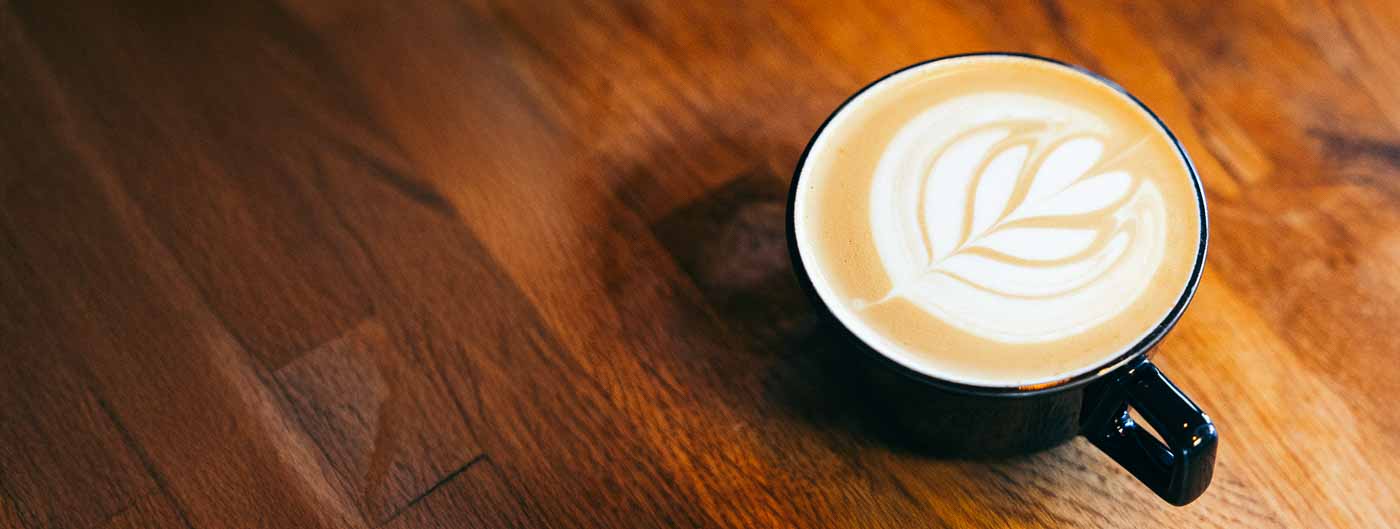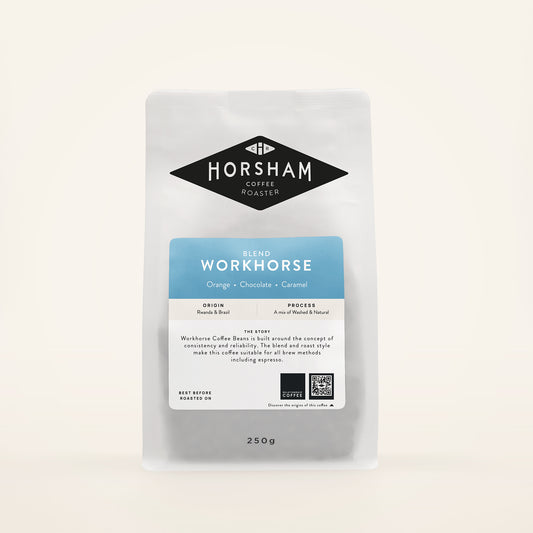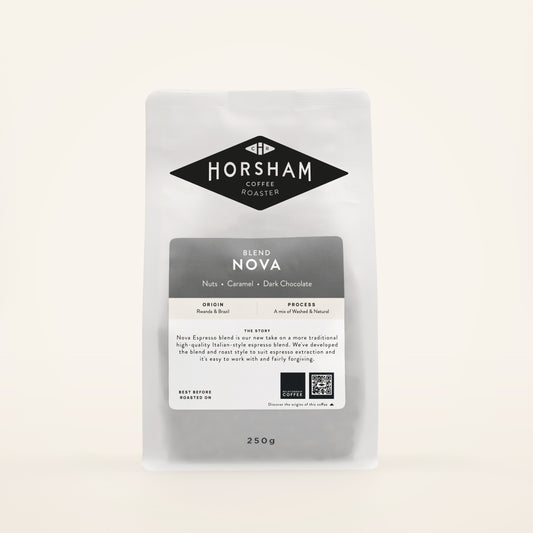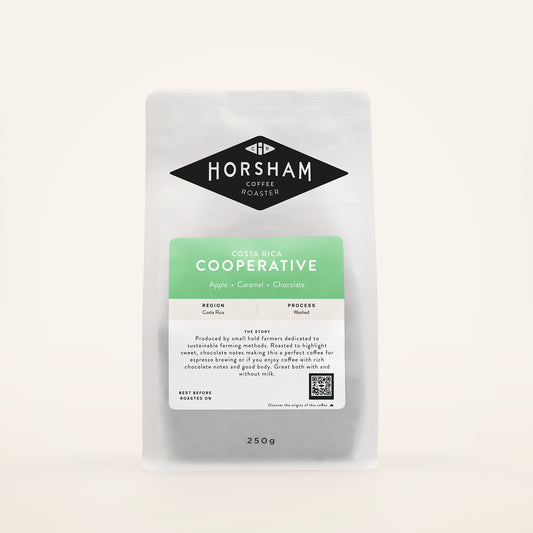What Is a Flat White Coffee?
A flat white is a rich and creamy espresso-based drink known for its smooth microfoam and intense coffee flavour. Usually served in a 160ml cup, it strikes the perfect balance between velvety milk and bold espresso – making it a go-to for speciality coffee lovers.
But what makes a flat white different from a latte or cappuccino? And how can you make one at home using ethically sourced coffee? Let’s explore.
Flat White vs Latte: What’s the Difference?
The flat white uses less milk and more microfoam than a latte. This means the espresso is more present, giving the drink a deeper, richer flavour.
| Feature | Flat White | Latte |
|---|---|---|
| Cup size | ~160ml | ~240ml |
| Coffee base | Double espresso | Single or double espresso |
| Milk texture | Microfoam (fine, glossy) | Steamed milk with thicker foam |
| Flavour | Bolder coffee taste | Milder, milkier |
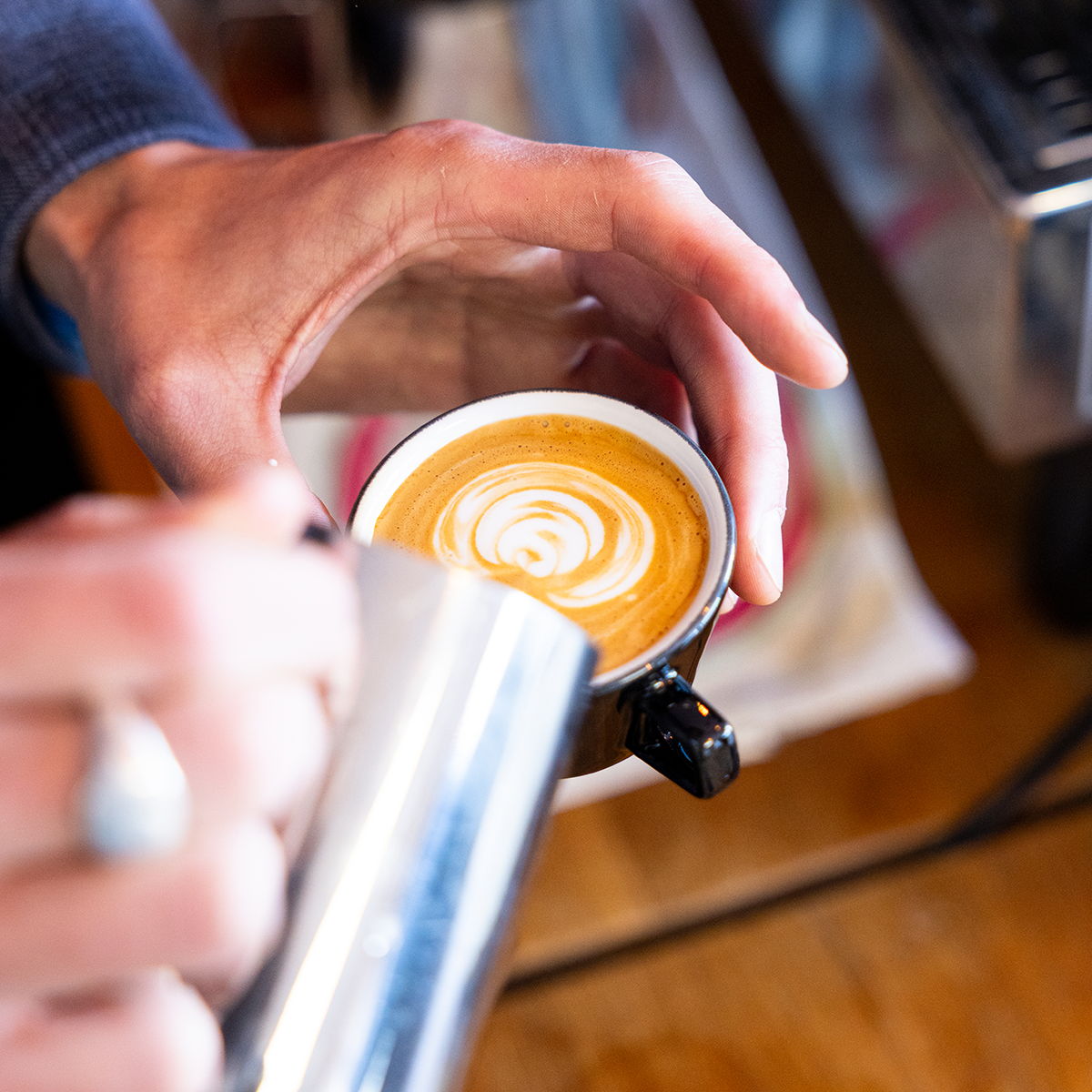
How to Make a Flat White at Home
What You Need:
- Double espresso – use a high-quality, freshly ground coffee
- Steamed milk – ideally full-fat milk or a barista-style plant-based alternative
- 160ml ceramic cup
Method:
- Brew a double shot of espresso into your cup.
- Steam milk to around 60–65°C, creating a smooth, velvety microfoam.
- Swirl both the espresso and the milk to remove any large bubbles.
- Slowly pour the milk into the espresso, finishing with a pattern if desired.
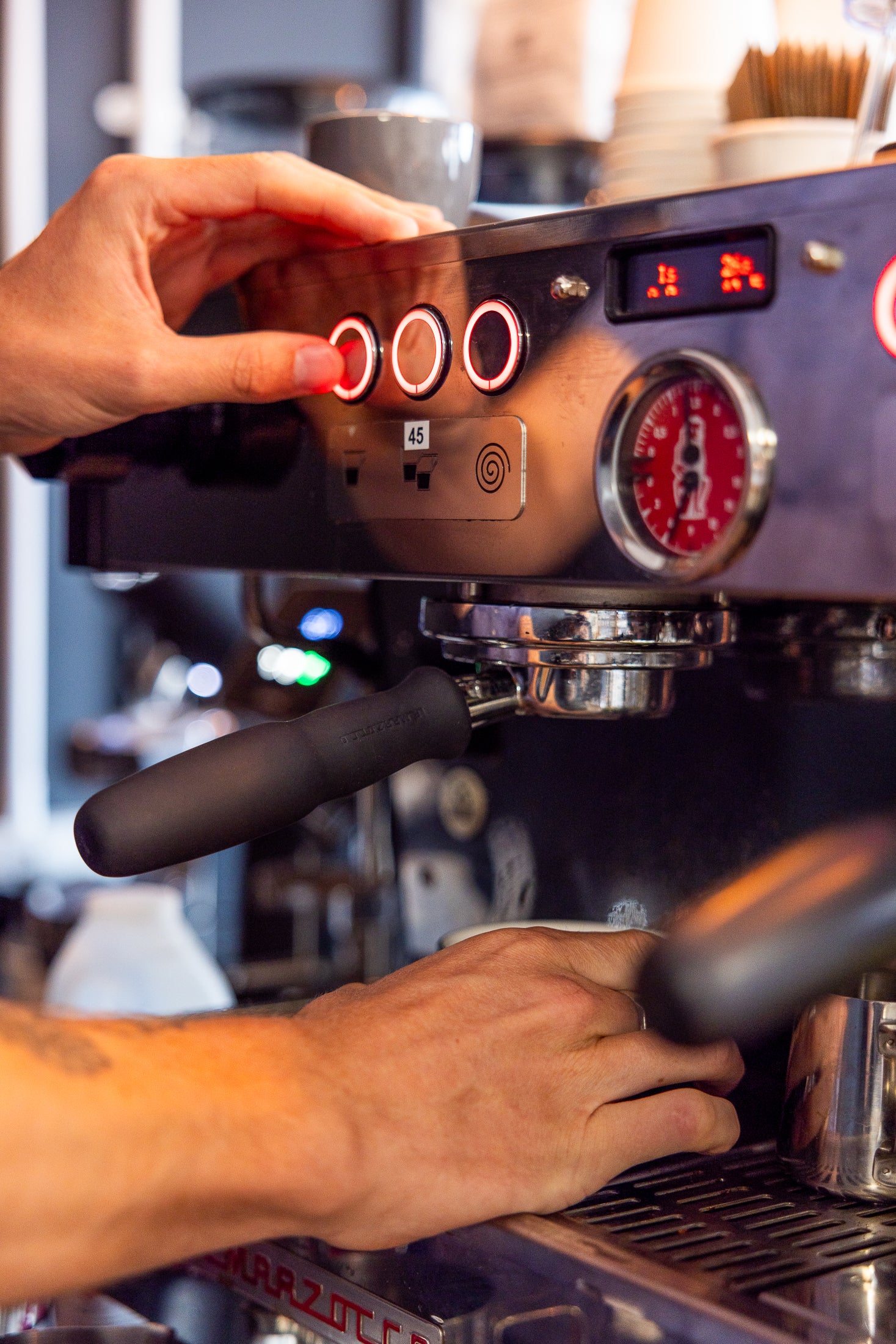
Flat White Calories: How Many Are in One?
Since espresso itself is very low in calories, the number of calories in a flat white is generally dictated by the milk used:
- Whole Milk: ~120–140 kcal
- Skimmed Milk: ~70–90 kcal
- Oat Milk (Barista): ~100–130 kcal
(Not including any syrups or flavourings)
Despite its creamy taste, a flat white typically has fewer calories than a latte due to the smaller milk volume.
How Much Caffeine Is in a Flat White?
A flat white usually contains around 120–160mg of caffeine, based on a double shot of espresso. But several factors can influence the exact amount. For instance, robusta beans contain nearly double the caffeine of arabica, but we exclusively use 100% arabica – chosen for their clean, sweet, complex flavours.
Your espresso recipe (how much coffee you use vs your yield) will also have an impact on the amount of caffeine in your drink. We generally recommend 18 grams of coffee to a 40-42 gram yield for a balanced shot.
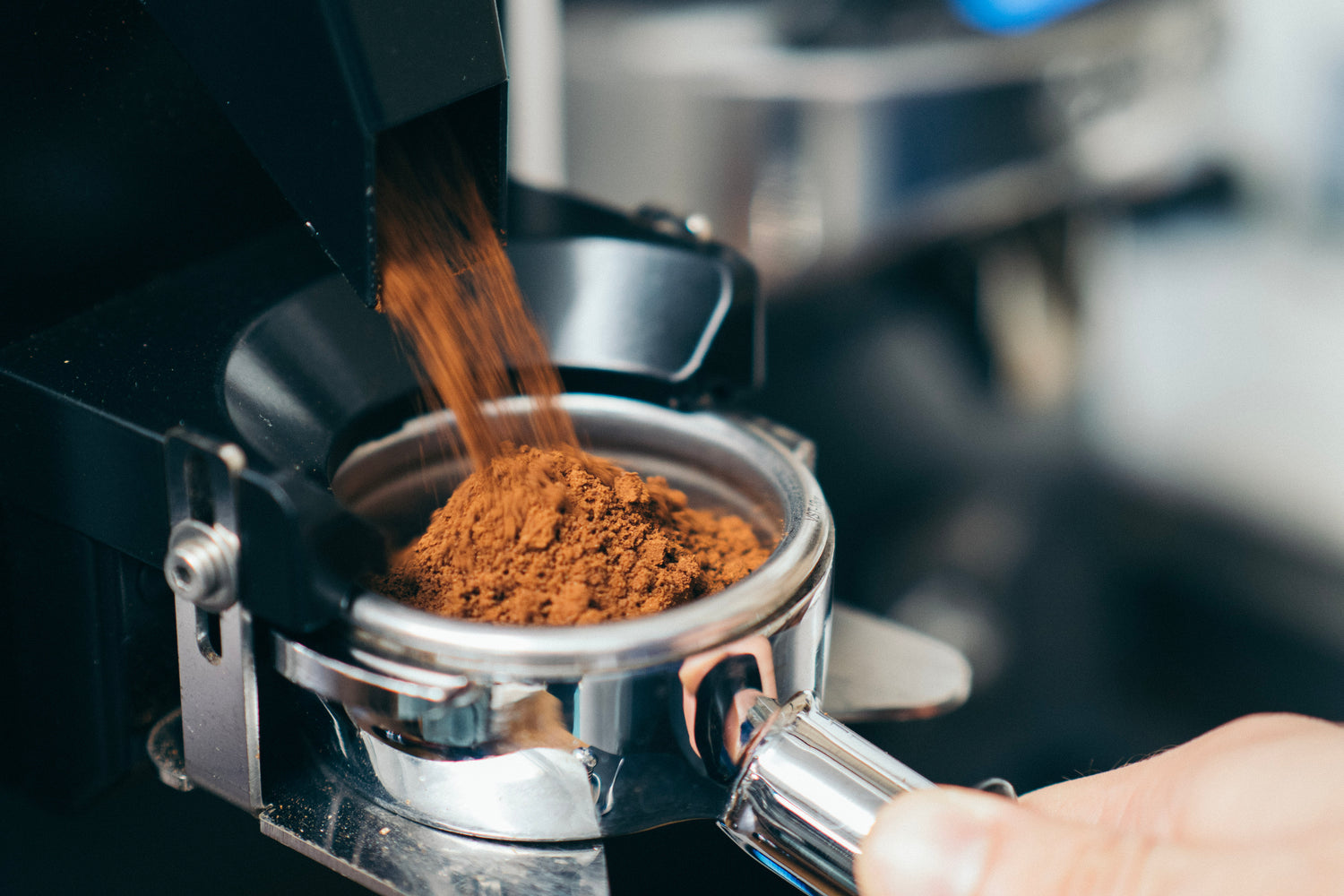
The History of the Flat White
The flat white emerged from the specialty coffee scenes of Australia and New Zealand during the 1980s. It was born from customer requests for a cappuccino with less foam – a “flatter” version of the drink. Over time, the flat white carved out its own identity and began spreading globally, gaining serious popularity in the UK around 2015.
Today, it’s become a staple on the menu at speciality coffee shops – including our own Burgess Hill roastery café space, where we often serve it using our Workhorse or Nova espresso blends.
At Horsham Coffee Roaster, we’re meticulous about coffee quality – from sourcing directly from farmers, to roasting on our low-emission Loring S35 for a cleaner, greener cup.
We roast for flavour, clarity and consistency – and our beans are perfect for flat whites, lattes and other espresso-based drinks. If you’re after a sweet, balanced cup with a rich crema and microfoam-friendly body, you’re in the right place.
Take a look at some of our favourite coffees for making milk based drinks. If you like a touch of fruity character to your flat white (think strawberry, chocolate and cream!) then the El Zumo is best coffee for you.
Shop Coffee Beans for the Perfect Flat White
-
Orange | Chocolate | Sweet Caramel
Workhorse Blend Washed & Pulped Natural
Regular price From £7.50Regular priceUnit price per -
Dark Chocolate | Nuts | Sweet Caramel
Nova Espresso Blend Washed & Pulped Natural
Regular price From £7.50Regular priceUnit price per -
 NEWElderberry | Plum | Caramel
NEWElderberry | Plum | CaramelEl Zumo Blend Natural
Regular price From £10.75Regular priceUnit price per -
Chocolate | Red Apple | Caramel
Cooperative Costa Rica | Washed
Regular price From £8.75Regular priceUnit price per
